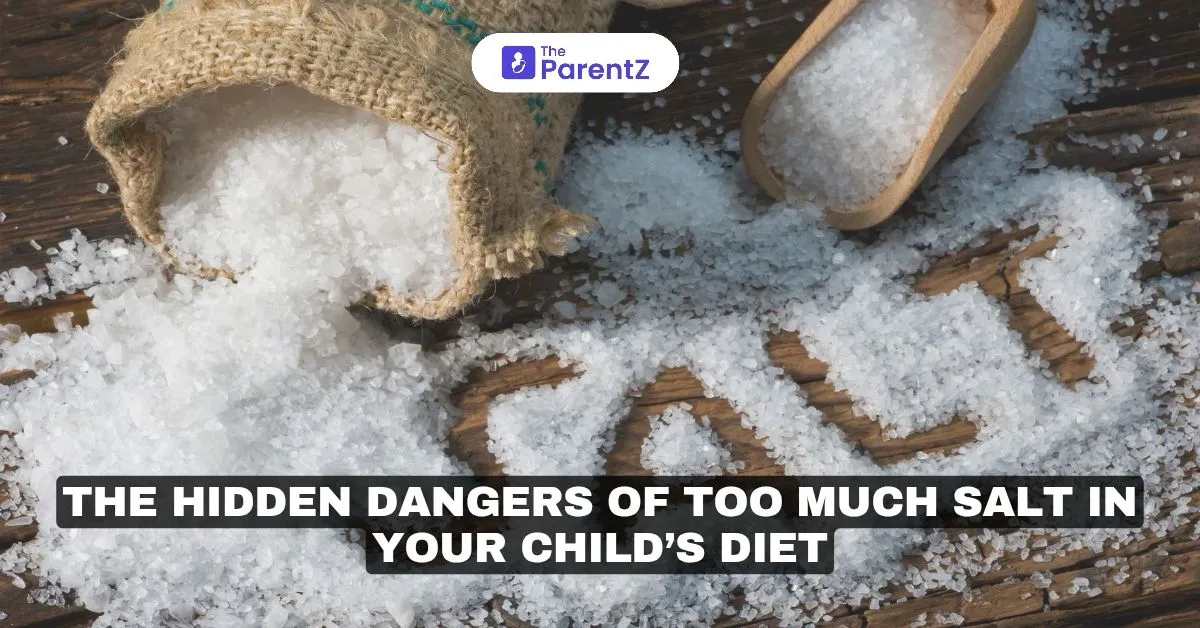Well, if your child’s favorite foods include chips, processed snacks, and fast food, you might want to stay alarmed.
Did you know too much salt intake can significantly impact your little one’s health? And most parents don’t even realize just how much sodium their kids are consuming daily.
According to the Centers for Disease Control and Prevention (CDC), kids between the ages of 2 and 18 consume an average of 3,393 mg of sodium per day, while the recommended daily intake is 1,500 to 2,300 mg.
Excessive salt consumption has been proven to be linked to high blood pressure, kidney damage, and an increased risk of heart disease later in life.
The question is— why too much salt is dangerous for children? Read this article below to learn more.
How Too Much Salt Affects Your Child’s Health?
Here are a few reasons why excess sodium intake can negatively impact your kid’s health.
Increases the Risk of High Blood Pressure
Many people often associate high blood pressure with older adults.
However, the truth is, that children can too develop hypertension.
Did you know that a high-sodium diet actually causes the body to retain water, thereby increasing blood volume and putting additional strain on the heart and blood vessels?
In fact, as per a survey, every 1 in 7 children aged 12 to 19 already has high blood pressure or is on the verge of developing it.
Puts a Strain on the Kidneys
When sodium levels are too high, the kidneys struggle to keep up when it comes to filtering excess sodium from the body. Moreover, with time, this can lead to kidney damage and other kidney diseases.
Besides, some studies even show that kids with high-sodium diets are at a much higher risk of developing kidney stones, a concern that is now becoming increasingly common among children.
Increases the Risk of Obesity
While salt doesn’t directly cause weight gain, it does make kids thirsty.
The result? It makes them drink more sugary beverages such as sodas, sports drinks, and flavored juices. This cycle continues which eventually results in excess calorie intake, a higher risk of obesity.
Moreover, such kids who consume high-sodium diets are likely to eat more unhealthy, and processed foods, which further increases the risk of weight gain.
Weakens Bone Health
Did you know that excess sodium can lead to calcium loss in the body?
Yes, that’s true.
When sodium levels are too high, the body pulls calcium from the bones to balance things out.
This eventually weakens the bones and increases the risk of osteoporosis. Therefore, limiting salt intake is essential for strong, healthy bones.
Trains the Taste Buds for Unhealthy Eating
The truth is— kids develop their taste preferences during their early phase. So, if they grow up eating high-sodium foods, they will more likely crave salty snacks and processed foods as they get older. This ultimately increases the risk of developing lifelong unhealthy eating habits.
Final Thoughts
As parents, you might just focus on your little one’s sugar intake, but sodium is an equally silent culprit in their diets. With more than 90 percent of children consuming too much salt, it is more important than ever to cut back on their sodium intake for lasting health benefits.









